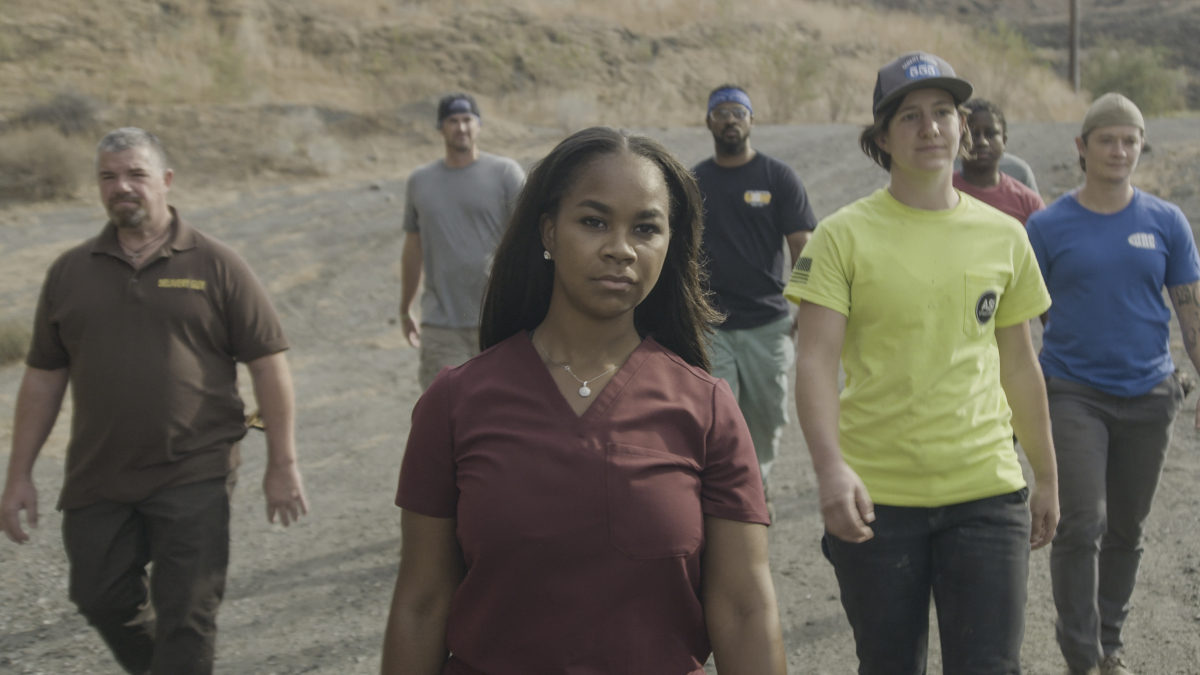“Tough as Nails” is back, giving us toughness in all sizes.
For the supersize, there’s Scott Henry, 40, a lineman. “He’s this big, lovable teddy bear,” Phil Keoghan, the show’s host and co-creator, told the Television Critics Association. “But he’s also 6-foot-7 and he’s a very powerful guy.”
And for the mini-size, there’s Celi Garcia (shown here, foreground), 31, a traveling nurse. “I’m 5-2,” she said, “and we had some really big guys on our show. And a lot of strong women.”
That’s sort of what Keoghan had in mind when he created the show, which is back (8 p.m. Wednesdays on CBS) for its second season. It has people compete in blue-collar tasks.
“I had some women who wrote to me and said, ‘It’s so unfair that you would put a woman against a man, when there’s upper-body strength at play,’” he said of the first season. “And I would only point to Linda Goodridge, who was literally half the weight of some of our bigger male contestants (and) outchopped all of them.”
Goodridge, a 29-year-old deputy sheriff when the show started, views that philosophically. “I very much understand that my physical strength has an end point,” she said. “But my spiritual strength has taken me places I never thought I could go.”
That included finishing fourth on “Nails.” The winner was Kelly “Murph” Murphy, 47, a former Marine who defines toughness like this: “For me, it’s the ability to put aside fear, to get the job done.”
This second season again has people from macho jobs – a welder, a mason, a bricklayer, a steelworker and more. And it has Merryl Tengesdal, 49, a retired Air Force colonel who was the first Black woman to fly the U-2 spy plane. “I never thought I would reach this point,” she said. “But I just kept doing it because I always wanted to be an astronaut; I always wanted to fly.”
And it has Garcia, who has a mobile life of nursing. “With the pandemic, I was living in (Los Angeles), and they called me: ‘We need you in San Diego in five days.’”
So she packed up what she calls her household and moved. “A travel nurse (has) so much experience that we don’t need training. We get an orientation for one day and the next day, we are” working.
And it’s painful work, Keoghan said. “Celi is fun and bubbly and so positive. But (then she’s) holding someone’s hand when they are dying from COVID and their family can’t be there.”
Under the bubbly surface, she has to be as tough as nails.
